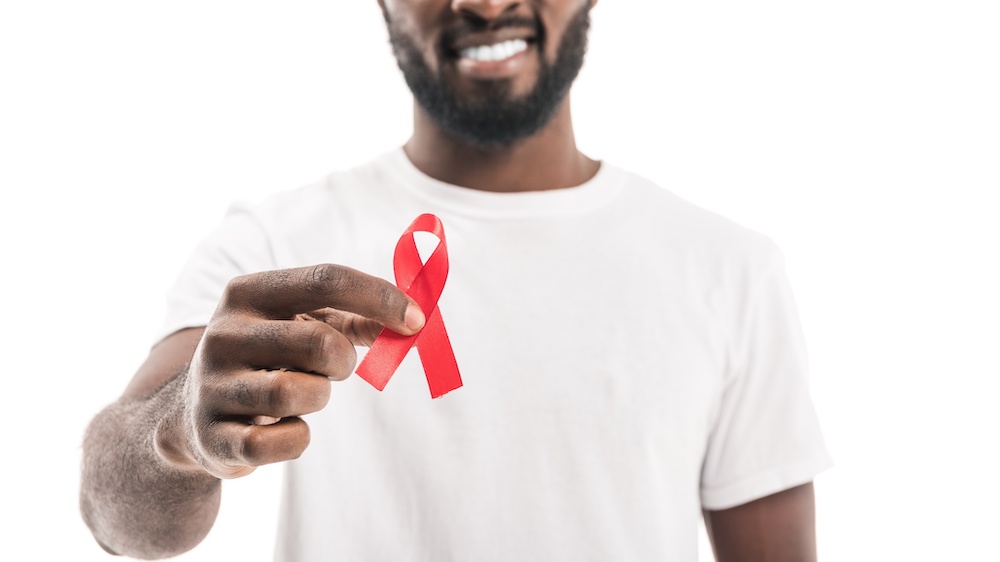If you’re interested in sharing your opinion on any cultural, political or personal topic, create an account here and check out our how-to post to learn more.
____
Despite Black people only making up 13% of the population in the United States, of the 37,832 new HIV diagnoses in the U.S. during 2018, 42% were among adult and adolescent Blacks. February celebrates Black History Month, and February 7 was recognized as National Black HIV/AIDS Awareness Day. We, as a community, have impacted every facet of society and continue to make strong noteworthy contributions. However, are you taking care of yourselves and your sexual partners? Do you know your sexual health status?
Traditionally, public discourse has centered on condoms and abstinence. In looking at television shows and movies, there is a gap in conversations surrounding sexual health safe practices. For instance, in 2017, there was a lot of discussion on Twitter and regarding the HBO TV show Insecure. In essence, the Twitter exchanges centered on safe sex practices and the lack of condoms during the sex scenes. So much conversation was generated on Twitter, executive producer and lead actress Issa Rae was prompted to respond, stating, “We tend to place condoms in the background or imply them. But we hear you guys and will do better next season.” That is just one cultural example of safe sex practices, but if you take a moment, I bet you can think about the last time (or lack thereof) a TV show or movie discussed condoms and HIV. The argument can be made that television shows and movies are just entertainment; however, art often influences life.
Think about this question for a moment: are condoms enough to stay protected from sexually transmitted infections (STIs) and HIV? The answer is no.
Despite the medical advances made in HIV in terms of moving it from a terminal diagnosis to a chronic condition, there still exist a stigma and hushed conversations regarding HIV and its impacts. A lot of people think “it cannot happen to me.” As the statistic earlier demonstrated, it’s impacting our community and at higher rates than other races/ethnicities.
Additionally, we have disproportionately higher rates of the STIs chlamydia and gonorrhea. If you still need convincing of the severity of the problem, visit CDC Atlas Plus' website, where you’re able to see the HIV and STD cases in map format. (Spoiler alert: the highest number of cases are seen in the Southern United States.)
Knowing the statistics and raising your awareness helps to understand the next steps. As it relates to your sexual health, there are several preventive steps one can take to protect themselves from HIV. First, use condoms. If condoms are used correctly and ‘every time’, it significantly decreases your risk. Second, reduce your number of sexual partners. Having more sexual partners increases the chances of you being exposed to someone who is HIV positive. The third action is the most important and it is a medication that is being under-utilized in our community. The medicine is called pre-exposure prophylaxis, also known as PrEP. You may also recognize this medicine by its brand name, Truvada.
So what exactly is PrEP? PreP is a daily medication taken by individuals who are HIV-negative that reduces one’s overall risk of getting HIV. If taken correctly, PrEP decreases one’s risk of contracting HIV if exposed to the virus. In fact, PrEP is highly effective in reducing one’s risk of getting HIV by sexual contact by 99%. PrEP is for everyone who is HIV-negative and at an increased risk of getting HIV.
PrEP can be beneficial for a heterosexual person who:
1. has an HIV positive sexual partner
2. has multiple partners and/or a partner with multiple sexual partners and unknown HIV status
3. and inconsistent condom use.
For HIV-negative men who have sex with men, PrEP should be considered if you have:
1. a sexual partner who is HIV positive
2. multiple sexual partners or sexual partner with multiple partners whose HIV status is not known
3. anal sex without a condom
4. had a recent STI.
You might be thinking PrEP sounds really great, but what about the cost? Most private insurers and state Medicaid covers the cost of PrEP. If cost is still a key factor in you choosing PreP, then visit this website to learn more about programs to help cover the cost of PreP.
If any of this has sparked your curiosity for more information and/or if you’re interested in taking PrEP, please discuss with your physician or other healthcare provider. Staying safe means protecting yourself and others. Take the next step to prep yourself for control over your sexual health.
